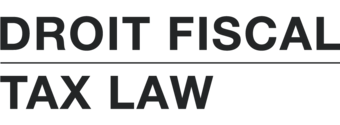
Photo by Sora Shimazaki
Is There a Source of Income? Depends Who You Ask
When determining whether a loss is deductible, or conversely, whether income is taxable, there must first be a “source of income” or, in other words, a “business”. A business has traditionally been understood to mean anything that occupies the time, attention and labour of a person for the purpose of profit.
Continue Reading / Lire la suite Is There a Source of Income? Depends Who You Ask
Changes to the CRA Voluntary Disclosures Program Coming on October 1, 2025
The Canada Revenue Agency has updated its information circular dealing with the Voluntary Disclosures Program. Applications received on or after October 1, 2025 will be considered under the new guidelines.
Une cession de créance ne constitue pas un paiement
Un contribuable était actionnaire de plusieurs sociétés. Il avait de plus créé une fiducie pour son bénéfice et celui de sa famille. Au fil des ans, une de ses sociétés lui a octroyé plusieurs prêts et avances. Lors d’une vérification par Revenu Québec, il est venu à l’attention du vérificateur que plusieurs de ces prêts et avances n’avaient pas été remboursés dans le délai prescrit par l’article 115 de la Loi sur les impôts (« L.I. ») de sorte que le contribuable avait reçu plusieurs avantages imposables.
Continue Reading / Lire la suite Une cession de créance ne constitue pas un paiement
Jumping on the Airbnb Bandwagon Comes with GST/HST
A corporation purchased a condo as an investment property. For the first 9 years, it rented the condo under long-term leases. However, for the last 14 months, it offered the condo through the Airbnb platform under short-term leases. The corporation was later assessed by the CRA for failing to collect the GST/HST on the sale of the condo.
Continue Reading / Lire la suite Jumping on the Airbnb Bandwagon Comes with GST/HST
The New Residential Rental Property Rebate – When Do We Start Counting for the One-Year Occupancy Requirement?
Under the relevant provisions of the Excise Tax Act, when a person purchases a new residential complex with the intention of renting it, he is entitled to a rebate, commonly referred to as the “GST/HST New Residential Rental Property Rebate”.
Applicability of GST on the Sale of a New House (for Non-Builders and Builders)
In a recent decision of the Tax Court of Canada (“TCC”), the Court dismissed the taxpayer’s appeal of a GST assessment for uncollected GST on the sale of a new house.
Can Break Fees “Reasonably Be Considered” to Have Been Received as an Inducement? (Revisited)
The Federal Court of Appeal (“FCA”) recently released a judgment[1] dealing with the tax treatment of “commitment fees” and “non-completion fees” (also known as “break fees”). The style of cause refers to Glencore Canada Corporation (“Glencore”). Glencore is a successor to Falconbridge Limited (“Falconbridge”).
Alternative Basis or Argument, But Within Limits
When an appeal is instituted before the Tax Court of Canada, the Crown is not limited to the position the Canada Revenue Agency (“CRA”) took in support of the assessment.
Continue Reading / Lire la suite Alternative Basis or Argument, But Within Limits
You Have to Attend Your Own Appeal
A recent decision of the Tax Court of Canada deals with the situation of a husband who transferred money to his wife while having an outstanding tax debt balance. The CRA therefore went after the wife (the appellant in this case) to claim that money back.
Continue Reading / Lire la suite You Have to Attend Your Own Appeal
Les demandes faites dans le cadre du Programme des divulgations volontaires sont une course contre le temps
La contribuable dans un récent jugement a immigré au Canada en 1974. Lorsqu’elle est venue, elle détenait déjà des actifs en Suisse. Elle n’a jamais déclaré ces actifs ni les revenus générés par ces actifs. Lors d’un voyage en Europe, alors qu’elle traversait la frontière franco-suisse le 18 juillet 2014, les autorités françaises ont découvert des relevés d’une banque suisse dans sa voiture.
